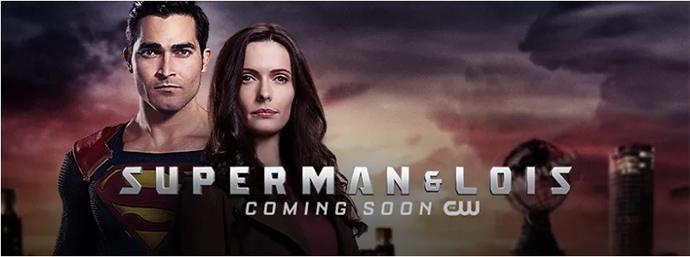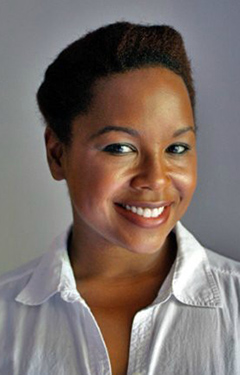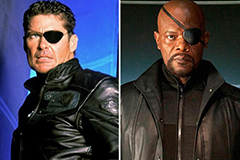Comics /
Cult Favorite
Sour Grapes

By Philip Schweier
November 19, 2020 - 14:00
My interest has been piqued lately by a story that’s been making the rounds of various geek culture news websites. BleedingCool and ScreenRant have both reported that producers of CW’s forthcoming
Superman and Lois TV series have chosen not to renew the contract of writer Nadria Tucker.
According to
IMDB.com, Tucker’s previous TV credits include one episode of the TV show Underground, and 11 episodes of
SyFy’s Krypton series.
She tweeted, “…I got word that my contract on Superman and Lois won't be extended, my services no longer needed…”
In a contract labor environment, indefinite employment is not guaranteed; quite the opposite, in fact. It is only assured for the duration of the contract – six months, one year, whatever BOTH parties have agreed to.
So it sounds as if Tucker took the job
knowing there was no guarantee she would remain on staff. For a first year program, I don’t find that surprising. The production probably has a rather lean budget, and is no doubt treading carefully in an effort to win the hearts and minds of viewers and the network.
Tucker goes on to say, “…This, after months of me flagging #metoo jokes in dialogue of me defending the Bechdel test*, of me FIGHTING to ensure the only Black faces on screen aren't villains, of me pitching stories for female characters (there's one in the title of the series!) that went ignored…”
That suggest to me she spent months being overly vocal, perhaps pushing her agenda too aggressively. Advocates of social justice and ethnic diversity are known to argue their beliefs rather fiercely.
In my experience, if a contributor to a creative project becomes too challenging to put up with, it’s likely there will come a point where their participation is no longer required. This applies to everything from high school prom decorations to writing for a weekly TV series.
CW programming has cultivated a reputation for being very proactive where social justice issues are concerned. I’m uncertain as to why Tucker would feel the need to challenge the producers’ standards for inclusion. However,
the Bleeding Cool article suggests that producers – and showrunner Todd Helbring specifically – failed to meet her personal expectations.
In an
interview with Jonita Davis, published on ScreenRant.com, Tucker says, “For example, we pushed for diversity in the beginning with some of the castings of Martha and Jonathan Kent. Because they’re Superman’s adoptive parents, they can be literally anything in the world.”
I understand her point, but I still disagree. When writing for entertainment, it helps to recognize the audience’s expectations. If one were writing a character who is a Jewish rabbi in New York, an older white man named Steinberg might be expected; and while a younger Asian rabbi named Takahashi may truthfully exist, it’s not what the audience expects to see.
Some might argue this is stereotyping, but it could also be considered entertainment shorthand. Giving the audience a small, easily acceptable detail helps move the story along.
Tucker goes on to say the idea of non-caucasian Kents was rejected, and white actors were cast. However, when the role of Martha Kent was recast, “Again, we pushed for diversity. Again, we’re ignored.”
In other words, Tucker attempted to revisit a decision that had already been made. This reinforces my suggestion she may have made a pest of herself.
I spoke with an African-American friend of mine regarding re-imagining historically white characters. Three specific instances were mentioned:
- Samuel L. Jackson as Nick Fury. Several years before the actor’s appearance in Iron Man (2008), Marvel created an alternate universe Nick Fury, he was modeled after Jackson. The actor enthusiastically approved, and was eager to take on the role when the opportunity arose.
- Laurence Fishburne as Perry White in Man of Steel (2013). While the character has historically been portrayed by Caucasian actors, ethnicity is not germane to the character, so casting an appropriate actor without any racial concerns worked quite easily.
- However, Fantastic Four (2015) was a different matter. Michael B. Jordan was cast as Johnny Storm, while Kate Mara was cast as his sister, Sue. The racial difference was explained as, “They’re adopted.” Shoehorning an African-American into a predominantly white cast was just one of the film’s many faults. It has nothing to do with racism, and everything to do with the audience’s ability to believe.
My friend also commented that characters are often re-imagined to meet a racially diverse agenda. He personally felt this approach to be a matter of too little, too late. “As a black man, I don’t want white characters that have been given black face,” he told me. “Those are hand-me-downs. I’d rather see ethnic characters who were created that way. I believe that’s one reason
Black Panther (2017) succeeded so well.”
With that thinking in mind, it seems to me a screen writer might concentrate on crafting good, solid characters mostly devoid of ethnicity. It then becomes the responsibility of the casting department to hire the best actors, regardless of race. Of course, this approach may result in some necessary adjustments, such as changing a name or modifying a backstory. But if the writer of the character is truly making the effort to be color blind, minor changes shouldn’t be an issue.
* Also known as the Bechdel–Wallace test, it measures the representation of women in fiction. It asks whether a work features at least two women who talk to each other about something other than a man. The requirement that the two women must be named is sometimes added. – Wikipedia.
Last Updated: March 3, 2025 - 20:40




